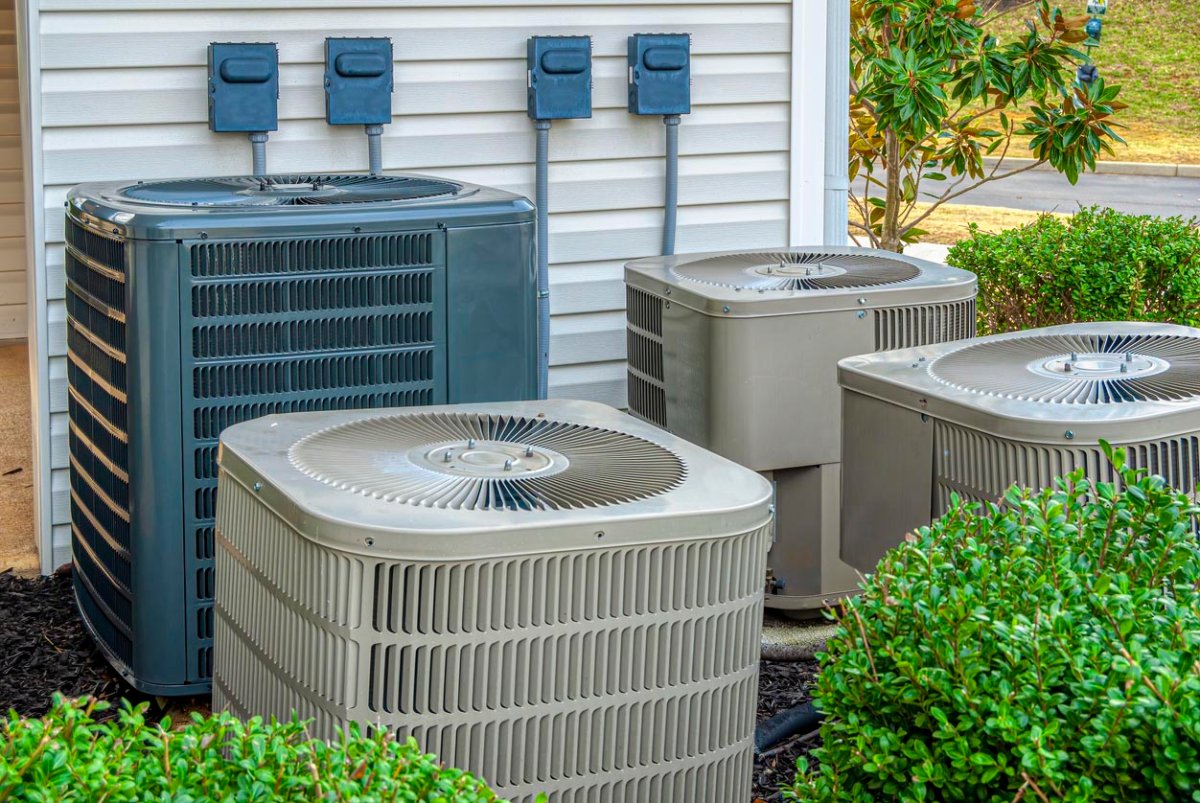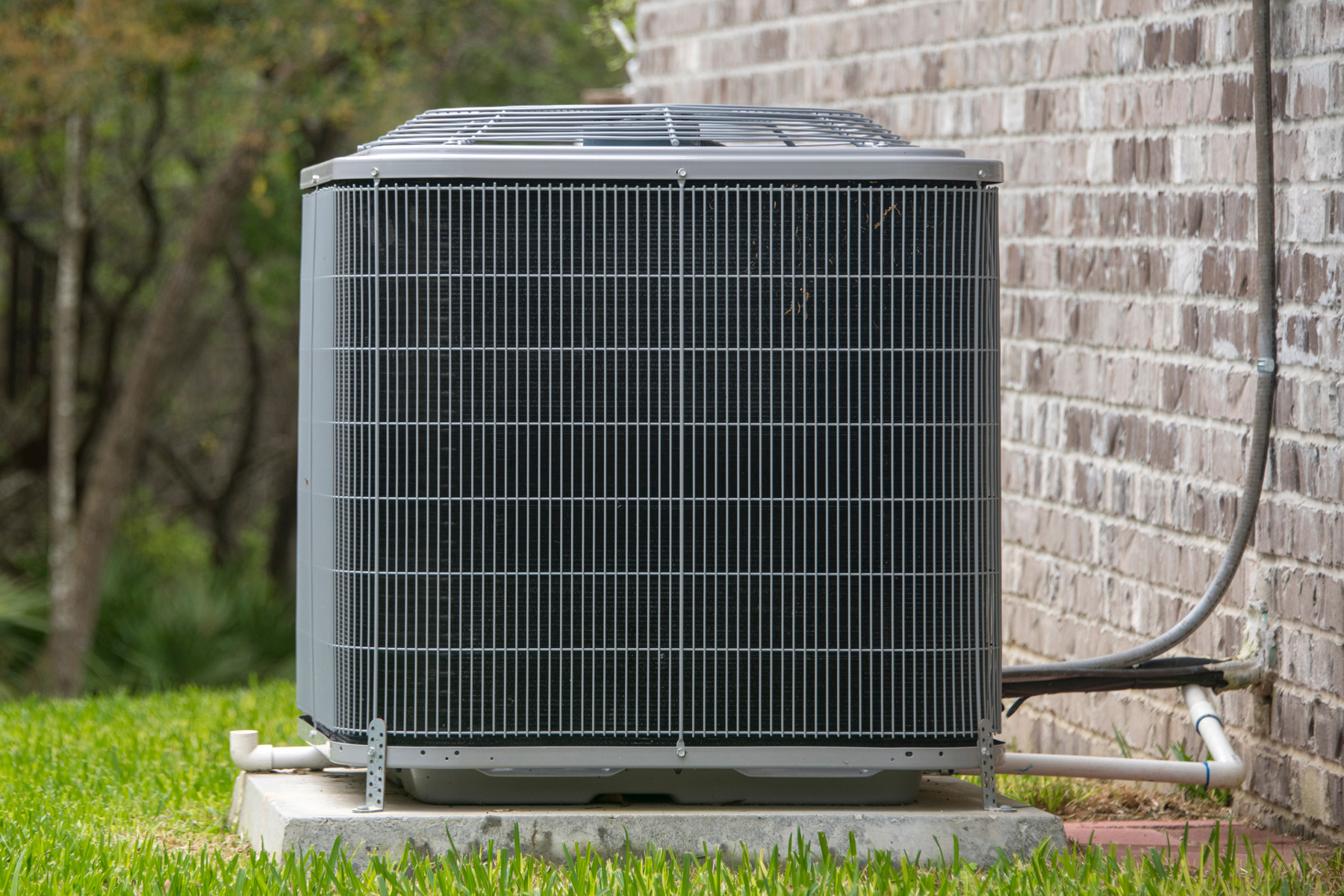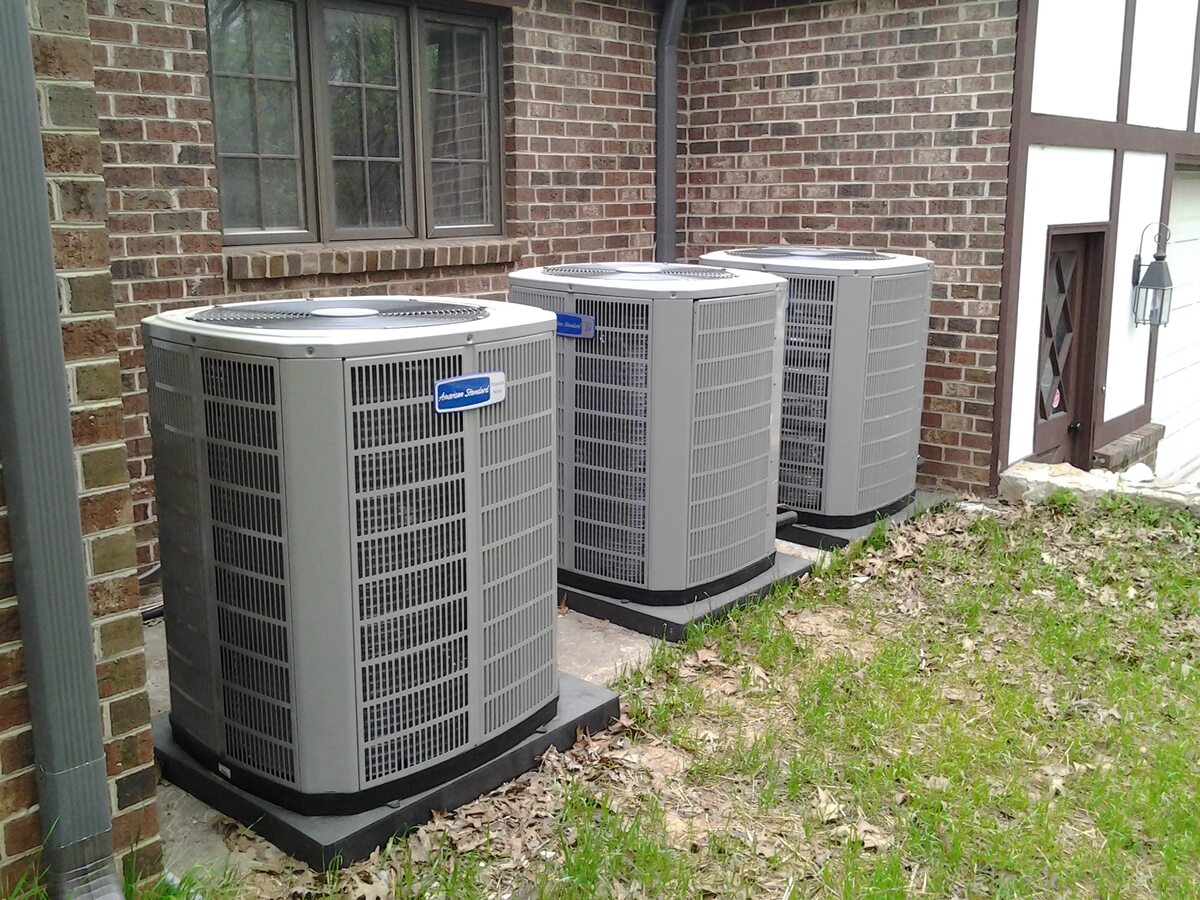How Much Does A Condenser Cost For An Air Conditioner

Frequently Asked Questions: Air Conditioner Condenser Replacement Costs
Replacing an air conditioner condenser can be a significant expense. This FAQ aims to provide you with a clear understanding of the costs involved, helping you make informed decisions. We'll cover the key factors influencing the price and offer practical advice for managing this important home maintenance task.
Question 1: What's the average cost to replace an air conditioner condenser?
The average cost to replace an air conditioner condenser typically ranges from $2,000 to $6,000. This cost includes the price of the new condenser unit itself, plus the labor charges for installation and disposal of the old unit. The final price can vary significantly based on several factors, which we will cover in more detail below.
Consider this a broad estimate. Getting multiple quotes from qualified HVAC contractors is crucial to obtaining an accurate price for your specific situation.
Question 2: What factors affect the cost of a condenser replacement?
Several factors can influence the final cost of replacing your air conditioner condenser:
- Condenser Unit Size (BTU Rating): Larger condensers with higher BTU (British Thermal Unit) ratings, designed to cool larger spaces, will naturally cost more than smaller units. The BTU rating should match the cooling needs of your home.
- Condenser Unit Type and Efficiency (SEER Rating): Higher SEER (Seasonal Energy Efficiency Ratio) ratings indicate greater energy efficiency. More efficient condensers usually have a higher upfront cost, but they can save you money on your energy bills over time. Also, there are different types of condensers, like single-stage, two-stage, and variable-speed, with variable-speed units being the most expensive but also the most efficient and providing the most consistent temperature control.
- Brand and Model: Well-known and reputable brands often command a higher price due to their perceived reliability and longer warranties. More advanced models with additional features will also be more expensive.
- Labor Costs: Labor rates vary depending on your geographic location, the contractor's experience, and the complexity of the installation. Some installations are straightforward, while others may require modifications to ductwork or electrical connections, increasing labor costs.
- Refrigerant Type: The type of refrigerant your system uses can impact the cost. Older systems may use refrigerants that are being phased out, making them more expensive to replace or recharge. Newer, more environmentally friendly refrigerants are becoming standard but can also affect the overall cost.
- Permits and Inspections: Depending on your local regulations, you may need to obtain permits for the condenser replacement and have the installation inspected. These fees can add to the overall cost.
- Accessibility: If the condenser unit is difficult to access, such as on a roof or in a tight space, the labor costs may be higher due to the increased time and effort required for the installation.
- Warranty: The length and coverage of the warranty can influence the price. Condensers with longer and more comprehensive warranties may cost more upfront but can provide peace of mind and protect you from unexpected repair costs down the road.
- Ductwork Modifications (If Necessary): If the new condenser requires modifications to your existing ductwork to ensure proper airflow and efficiency, this will add to the overall cost.
- Electrical Work (If Necessary): If the electrical panel or wiring needs to be upgraded to accommodate the new condenser, this will also increase the cost.
It's essential to discuss all these factors with your HVAC contractor to get a comprehensive and accurate estimate.
Question 3: How much does the condenser unit itself cost, separate from installation?
The cost of the condenser unit itself typically ranges from $1,000 to $3,500, depending on the size, efficiency, brand, and model. This is just the cost of the equipment; it does not include the labor charges for installation, refrigerant, permits, or other associated costs.
Remember that purchasing the condenser unit yourself and hiring a separate contractor for installation can sometimes be problematic. If there are issues with the unit, you may be responsible for dealing with the manufacturer warranty, and the installer may not be liable for any defects in the equipment itself.
Question 4: Is it worth repairing my old condenser, or should I replace it?
Deciding whether to repair or replace your condenser depends on several factors:
- Age of the Unit: If your condenser is more than 10-15 years old, replacement is often the more cost-effective option. Older units are less efficient and more prone to breakdowns.
- Severity of the Damage: Minor repairs, such as replacing a fan motor or capacitor, may be worthwhile. However, if the compressor is failing or the coil is leaking refrigerant, replacement is usually the better choice.
- Cost of Repair vs. Replacement: Get quotes for both repair and replacement. If the repair cost is more than 50% of the replacement cost, replacement is generally recommended.
- Energy Efficiency: Older condensers are less energy-efficient than newer models. Replacing your unit with a high-efficiency model can save you money on your energy bills over time.
- Refrigerant Type: If your old unit uses R-22 refrigerant, which is being phased out, repairs may become increasingly expensive due to the rising cost of this refrigerant.
Consult with a qualified HVAC technician to assess the condition of your condenser and provide you with recommendations based on your specific situation. They can perform diagnostic tests to determine the extent of the damage and provide you with a clear understanding of your options.
Question 5: Can I replace just the condenser, or do I need to replace the entire AC system?
While it's possible to replace just the condenser, it's generally recommended to replace the entire AC system (including the evaporator coil) at the same time. Here's why:
- Matching Components: The condenser and evaporator coil are designed to work together as a matched system. Replacing only one component can lead to reduced efficiency and performance.
- Refrigerant Compatibility: Newer condensers often use different refrigerants than older evaporator coils. Mixing refrigerants can damage the system.
- Warranty Issues: Some manufacturers may void the warranty if you replace only the condenser and not the evaporator coil.
- Overall System Performance: Replacing the entire system ensures optimal performance and efficiency. You'll get the full benefit of the new technology and improved energy savings.
- Future Repairs: If your condenser is failing, it's likely that other components of your AC system are also nearing the end of their lifespan. Replacing the entire system can prevent future breakdowns and costly repairs.
However, there might be specific circumstances where replacing only the condenser is feasible, such as if the evaporator coil is relatively new and compatible with the new condenser. Your HVAC technician can advise you on the best approach for your situation.
Question 6: How can I get the best price on a condenser replacement?
Getting the best price on a condenser replacement involves careful planning and comparison shopping:
- Get Multiple Quotes: Obtain at least three quotes from different HVAC contractors. Be sure to provide them with the same information about your home, the size of your AC system, and your cooling needs.
- Check Contractor Credentials: Verify that the contractors are licensed, insured, and bonded. Look for contractors with positive online reviews and a good reputation in your community.
- Ask About Energy Efficiency Rebates: Check with your local utility company and government agencies for energy efficiency rebates. These rebates can help offset the cost of a new, high-efficiency condenser.
- Negotiate the Price: Don't be afraid to negotiate the price with the contractors. They may be willing to offer discounts or incentives to win your business.
- Consider Off-Season Installation: HVAC contractors are often less busy during the off-season (spring and fall). You may be able to get a better price if you schedule your condenser replacement during these times.
- Review the Warranty: Carefully review the warranty terms and conditions before making a decision. Make sure you understand what is covered and for how long.
- Read the Fine Print: Before signing any contract, carefully read the fine print to understand all the terms and conditions. Pay attention to the scope of work, payment schedule, and cancellation policy.
- Ask About Financing Options: Some HVAC contractors offer financing options to help you pay for the condenser replacement over time. Compare the interest rates and terms of different financing options before making a decision.
Question 7: What size condenser do I need for my home?
Determining the appropriate condenser size for your home is crucial for efficient and effective cooling. An oversized condenser can lead to short cycling (frequent starts and stops), which wastes energy and reduces the lifespan of the unit. An undersized condenser won't be able to adequately cool your home, especially during hot weather.
The size of a condenser is measured in BTUs (British Thermal Units). A general rule of thumb is that you need about 20 BTUs per square foot of living space. However, several other factors can influence the required condenser size:
- Climate: Homes in hotter climates require larger condensers than homes in cooler climates.
- Insulation: Well-insulated homes require smaller condensers than poorly insulated homes.
- Window Size and Orientation: Large windows and south-facing windows can increase heat gain, requiring a larger condenser.
- Ceiling Height: Homes with high ceilings require larger condensers.
- Number of Occupants: Homes with more occupants require larger condensers.
- Sun Exposure: Homes with more sun exposure need larger condensers.
The best way to determine the correct condenser size for your home is to have a load calculation performed by a qualified HVAC technician. A load calculation takes into account all the factors mentioned above and provides you with a precise BTU requirement for your home. Avoid simply replacing your old condenser with the same size unit without verifying that it's still the right size for your needs.
A professional load calculation ensures that you get the right size condenser for your home, maximizing efficiency, comfort, and energy savings.










